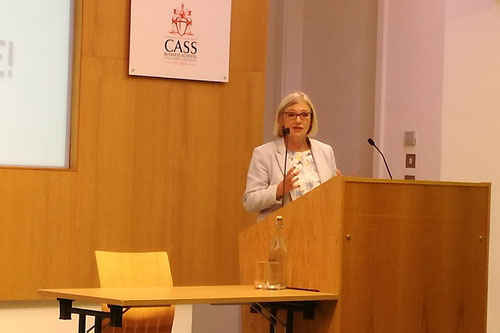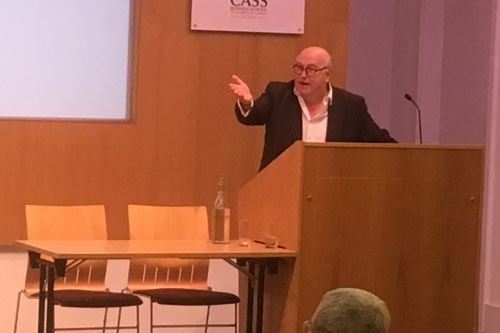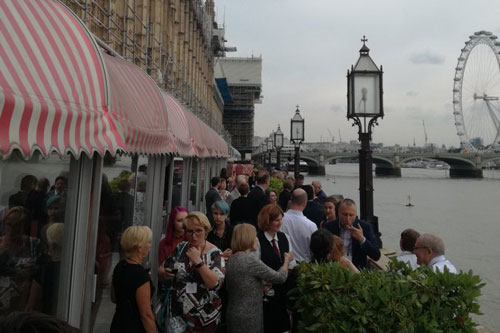Centre for Charity Effectiveness hosts NACC Conference in Council’s first event outside North America
Nonprofit Academic Centers Council conference delegates tour Cass, Mercer’s Hall and UK Houses of Parliament.
Cass Business School and the Centre for Charity Effectiveness (CCE) proudly hosted the first Nonprofit Academic Centers Council Conference to be held outside North America since the organisation was established in 1991.
The theme of the biennial conference in 2019, Building the Global Nonprofit Education Community: Diverse Perspectives Strengthening the Whole, was discussed by dozens of delegates in a range of formats across the two-day event.
Dr Helen Stephenson CBE, Chief Executive of the Charity Commission for England and Wales, opened proceedings at the conference by explaining why effective charity regulation matters to both charities and the public.
“Charities are and must continue to be courageous advocates of their diverse and sometimes competing causes,” Dr Stephenson said.

“The potential here for charities lies not in what they do or whom they help, but how they do it.
“To put it starkly: charities have the potential to model the leadership that the public expect but are not seeing in politics or business or other areas of national life.”
Following Dr Stephenson’s welcome plenary, delegates were invited to attend various sessions throughout Day One of the conference.
The first day of the conference concluded with a reception at Mercers' Hall where the President of City, University of London, Professor Sir Paul Curran addressed delegates.
As well as hosting the NACC’s first conference held outside North America, the Cass CCE Charities master’s programme is the only programme outside North America to be accredited by the NACC.
Day two of the conference was opened by Sir Stuart Etherington, outgoing CEO of the National Council for Volunteer Organisations (NCVO), who discussed the context and challenges of the UK’s voluntary sector.
Sir Stuart discussed the history of the NCVO, as documented in Dr Justin Davis Smith’s recently published book, and detailed the changing nature of the sector.
“The public remain the voluntary sector’s largest source of income at about 45 per cent,” Sir Stuart said.

“The government comes second, accounting for about a third of sector income but it is clear that the relationship between state and the sector has changed over the last two decades.
“Also, moral leadership and reputation management are becoming ever more important … there have been some scandals but at its heart it is based on altruism and in the main is good.”

Delegates were again invited to attend sessions on a range of topics throughout the second day of the conference, which concluded with a reception at the UK Houses of Parliament hosted by Baroness Pitkeathley.
